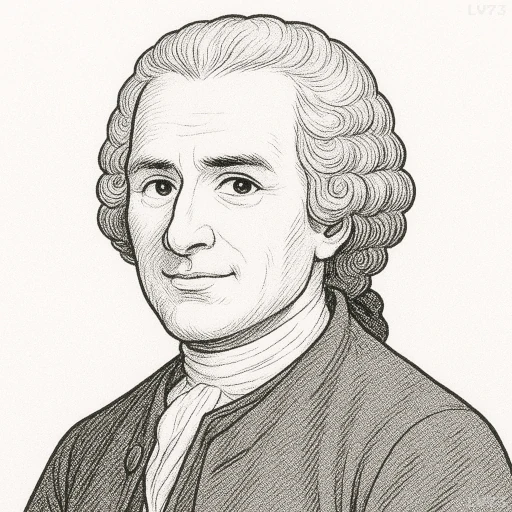“No man has any natural authority over his fellow men.”

- June 28, 1712 – July 2, 1778
- Born in Geneva
- Philosopher, political philosopher, writer, composer
table of contents
Quote
“No man has any natural authority over his fellow men.”
Explanation
In this quote, Jean-Jacques Rousseau asserts a fundamental belief in equality and freedom among human beings. He argues that no individual has an inherent or natural right to exercise power or authority over others. According to Rousseau, natural authority—the idea that one person can possess dominion over another simply because of their birth, status, or inherent qualities—is an illusion. This statement reflects his rejection of hierarchical systems based on birthright, such as monarchies or aristocracies, where individuals are born into positions of power over others. Rousseau believed that such systems were contrary to the natural state of humans, who, in his view, were originally equal and free from the domination of others.
Historically, Rousseau’s critique of authority aligns with his broader political philosophy, particularly as articulated in The Social Contract. He argued that legitimate authority does not come from divine right or the arbitrary power of individuals but from the general will of the people. In a just society, authority is derived from a collective agreement, and individuals submit to it not because of natural hierarchy, but because they consent to it for the greater good. Rousseau believed that in the state of nature, humans were free and equal, and it was only through the establishment of society and its institutions that certain individuals began to claim authority over others, leading to inequality and oppression.
In modern times, Rousseau’s statement resonates with ideas of democracy, human rights, and the rejection of authoritarianism. The idea that no one is born with the right to rule over others is foundational to modern democratic systems, where power is meant to be granted by the consent of the governed, not through hereditary or divine authority. Rousseau’s words remind us of the importance of egalitarianism and the need to question systems that place individuals or groups in positions of power based on arbitrary distinctions rather than collective consent. It serves as a challenge to modern systems of social inequality and encourages us to strive for a world where power is shared equally and based on mutual respect.
Would you like to share your impressions or related stories about this quote in the comments section?

